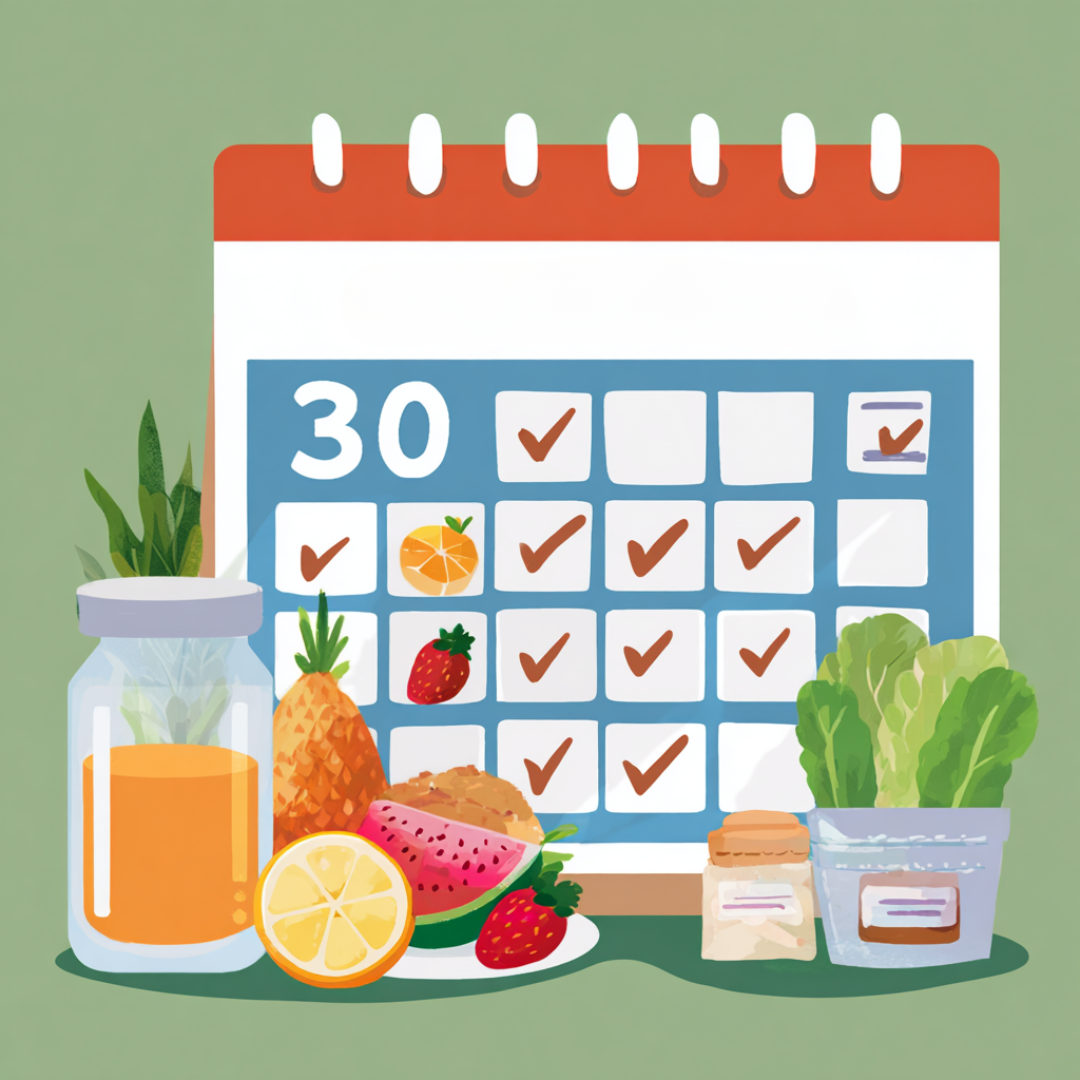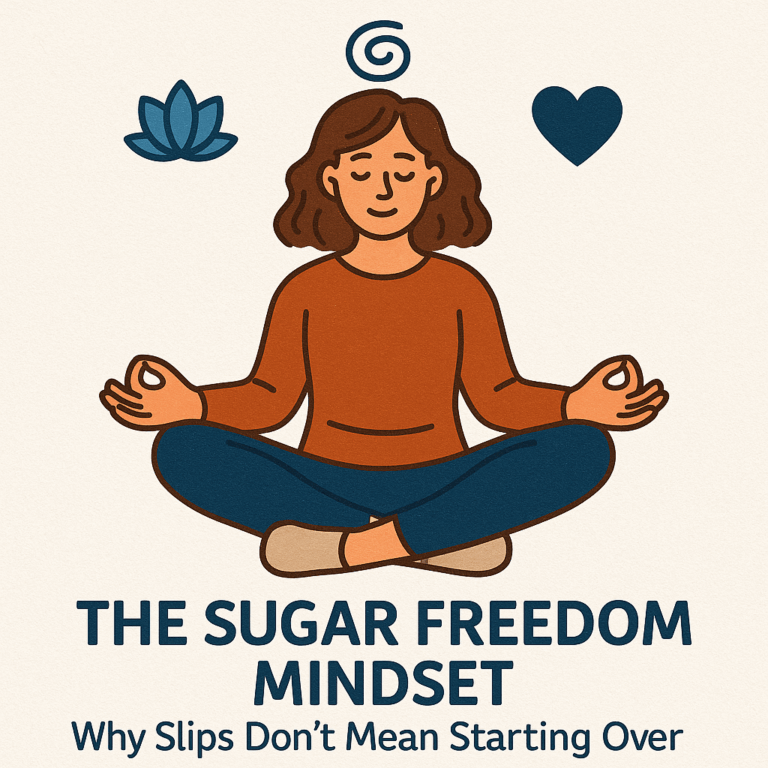By Mike Collins, The SugarFreeMan
Founder of SugarDetox.com and the 30-Day Sugar Freedom Challenge
After 35+ years sugar-free and raising two sugar-free kids, I can tell you this:
If you want to help your children develop a healthy relationship with sugar, you have to go first.
Featured Snippet Summary
If your kids struggle with sugar cravings, tantrums, or picky eating, the first step isn’t changing their snacks – it’s changing yours. The most effective way to help your child is to model a sugar-free lifestyle yourself.

This article was review by Dr. Camela McGrath, MD, FACOG. Find more about her here
Table of Contents
- The Reality of Raising Sugar-Free Kids
- Why Kids Struggle So Much With Sugar
- Sugar Addiction Is Not Just “Normal Childhood”
- The Most Important Thing Parents Can Do
- Lead By Example, Not By Force
- How to Start: Success Strategies for Parents
- Why It’s Never Too Early – or Too Late
The Reality of Raising Sugar-Free Kids
When my wife and I decided to raise our children sugar-free, it wasn’t easy.
We had to battle with schools. Push back against birthday party norms. Explain our choices to friends, teachers, and even our own families.
People told us we were “depriving our kids of one of life’s greatest joys.”
But we believed something different: that joy doesn’t come from a sugar high. It comes from real health
Now, decades later, I can tell you – our kids are proud of how they were raised
And they’ve thanked us more than once.
Why Kids Struggle So Much With Sugar

If you’ve ever seen a toddler strapped into a shopping cart, flailing and screaming for candy at checkout, you know what I’m talking about.
Now imagine that same battle playing out at home – three times a day.
• They refuse real food
• They demand sugar
• They melt down when you say no
Sound familiar?
It’s not because your child is “bad” or “spoiled.”
It’s because sugar hijacks the brain’s reward system – and kids are especially vulnerable to that
According to the CDC and NIH, children who consume high amounts of added sugar are at higher risk for obesity, behavioral issues, metabolic disorders, and mood swings by adolescence.
This isn’t about parenting style.
It’s about biology.
Sugar Addiction Is Not Just “Normal Childhood”
Culturally, we’ve normalized sugar as a reward, a comfort, and even a rite of passage.
Cake at birthdays. Candy at school. Treats for good behavior.
But here’s the thing: no human body needs fructose to survive.
Zero.
Yet the average child in the U.S. consumes over 17 teaspoons of added sugar per day – more than 3x the recommended limit.
It’s not harmless. And it’s not “just a phase.”
The Most Important Thing Parents Can Do
You’ve probably heard this on an airplane:
Put your own oxygen mask on first.
That’s exactly what I tell parents who ask me how to help their kids with sugar.
Because your kids are watching.
They see what you eat.
They know where your stash is – just like I knew where my mom’s was.
And if you’re still using sugar to regulate stress, so will they.
Lead By Example, Not By Force
You can’t “force” a child to go sugar-free and expect it to last.
But you can make them curious.
When you go first, you show them what’s possible.
You show them how to handle stress, boredom, or emotions without reaching for sugar.
And they will notice.
I’ve seen it again and again with the parents in our 30-Day Sugar Detox Challenge.
They sign up to fix their own habits.
And they end up changing their family’s future.
How to Start: Success Strategies for Parents
Here’s what I recommend to every parent dealing with sugar in the home:
1. Go sugar-free yourself first.
Model what you want them to learn. They will follow what you do, not what you say.
2. Clean up the environment.
Out of sight, out of mind. If it’s not in the pantry, it’s not a battle.
3. Involve your kids.
Let them help pick recipes, prep meals, and explore new foods with you.
4. Be honest.
Tell them why you’re changing. Explain what sugar does to the body in kid-friendly language.
5. Don’t moralize.
This isn’t about “good” or “bad.” It’s about feeling better. Stronger. Calmer.
Why It’s Never Too Early – or Too Late
Whether your kids are toddlers or teens, it’s never the “wrong” time to start.
Even if you’re pregnant or thinking about getting pregnant – now is the time to look at this.
Because sugar addiction doesn’t just affect your health.
It shapes how your children will view food, stress, and self-regulation for the rest of their lives.
You don’t need to overhaul everything overnight.
You just need to take the first step.
And if you want support, structure, and real tools to do it right – start here:

About the Author
Mike Collins, known as “The SugarFreeMan,” has been sugar-free for over 35 years and is the founder of SugarDetox.com. He has helped tens of thousands of people break free from sugar addiction through his evidence-based approach combining nutritional science with practical behavior change strategies.
Medical Disclaimer
This article is for educational purposes only and is not intended to replace professional medical advice. Always consult with a healthcare provider before making significant dietary changes, especially if you have underlying health conditions.
FAQs
Q: How do I help my child stop eating so much sugar?
Start by removing sugar from your own diet and modeling healthier choices. Kids follow behavior, not rules.
Q: Is sugar actually addictive for kids?
Yes. Sugar activates the brain’s reward system, which can lead to dependence—especially in children whose systems are still developing.
Q: Is it safe to raise a child completely sugar-free?
Absolutely. The body has no biological need for added sugar. A whole-food diet without refined sugar is both safe and beneficial.
Q: How do I talk to my kids about sugar without creating shame?
Be honest but non-judgmental. Talk about how food makes us feel and why you’re choosing to make different decisions as a family.
Q: What’s the first step for a parent wanting to change their family’s sugar habits?
Start with your own plate. Join a support structure like the 30-Day Sugar Detox Challenge and lead by example.


